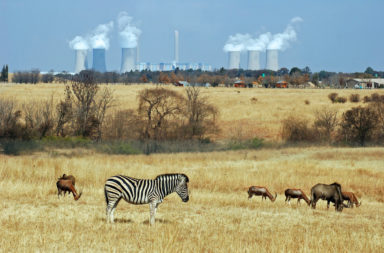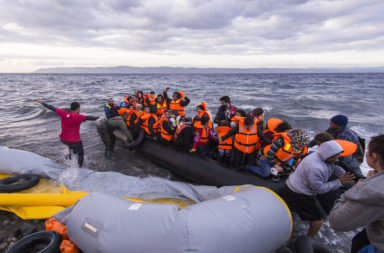In a surprising and widely-condemned move, Greece vetoed a European Union condemnation of China’s human rights record at the UN on Sunday, drawing sharp criticism from both human rights groups and foreign diplomats.
- Crisis-ridden Greece blocks United Nations Human Rights Council’s attempts to draw renewed attention to human rights abuses in China.
- Potential Chinese investment behind founder-member Greece’s awkward silence.
- After winning friends in poor countries with massive infrastructure investment, China now looks to Europe for further influence.
Human rights organisations such as Amnesty International reported that this was the first time the EU had failed to ever make such a statement at the UN’s most senior rights body, echoing many that the move weakened Europe’s position as a guardian of human rights.
Despite the motion being labeled as “unproductive criticism” by a Greek Foreign Ministry spokesman, many are drawing links between Greece’s troubled financial situation and the growing investment and influence held by the Chinese.
Greece’s Ongoing Money Troubles
As we approach the 7th anniversary of the contentious Greek bailout the International Monetary Fund (IMF), Athens looks set to receive a further $9.5 billion bailout installment with IMF to provide a new stand-by arrangement.
The general feeling is negative as I.M.F. officials had been very skeptical as to a new rescue package for Greece unless Europe lessened Greece’s massive debt commitments, preferring to assign responsibility for restoring the country’s economy to Europe, the current holders of over 80 percent of the Greek debt.
There’s also the matter of a 7 billion euro debt repayment due in July which Greece may not be able to meet if the I.M.F. and Europe cannot reach a new bailout agreement, which why some analysts believe that Europe agreeing to just enough debt relief to allow the fund to come back on board.
There is still a huge amount of economic uncertainty and China has taken advantage of Greece’s precarious position to extend its diplomatic investment at just the right time.
“One Belt, One Road”: The Power of Chinese Investment
Critical to China’s “One Belt, One Road” initiative, a massive infrastructure project across Asia, Africa and Europe are ports such as Piraeus , which China’s largest shipping company bought a majority stake in last year.
The colossal infrastructure projects form the core of China’s current economic and political agenda. President Xi Jinping of China looks to create new markets for the country’s construction state-led development model, creating strong economic and diplomatic connections at a time when Trump’s America is retreating from the global investment stage.
By using China’s money and industrial expertise to create a new kind of globalization China hopes to replace Western-dominated institutions of the 20th century and refashion the global economic order.
The projects also serve China’s economic interests, as domestic growth slows at home, to keep its economy growing.
China’s Record on Human Rights
- Amnesty International claims that there are more executions in China than the rest of the world combined. With no officially published statistics, advocates estimate the number of executed prisoners to be in the thousands.
- Chinese authorities are known to target activists with harassment, imprisonment and torture despite growing international pressure. Often the families of activists face the same punishments for dissent.
- Nobel Peace Prize winner Liu Xiaobo is currently serving an 11-year jail term for subversion, a political charge.
- Human Rights groups say that Tibetans, Uighurs and Mongolians face discrimination daily and act as ‘second-class’ citizens.
- China regards Falun Gong as a “cult” and claims followers engage in “anti-China political activities. “According to Amnesty International, “tens of thousands of Falun Gong practitioners have been arbitrarily detained” since the government launched a crackdown on the practice in 1999.
China’s Modern Day Marshall Plan
It appears that Mr. Xi is using Marshall Plan, America’s postwar reconstruction effort, as a template for this diplomatic campaign. Just as the United States extended vast amounts of aid to secure alliances in Europe, China is spending hundreds of billions on loans to forge alliances around the world.
It appears that the strategy is working. Greek prime minister Alexis Tsipras has visited China twice in just two years and proclaimed China the “country of honor” at Greece’s annual international business fair.
Having tasted success with this strategy when it comes to cash-poor European countries, we can certainly expect further Chinese influence in European member states and European policy making in the future.





